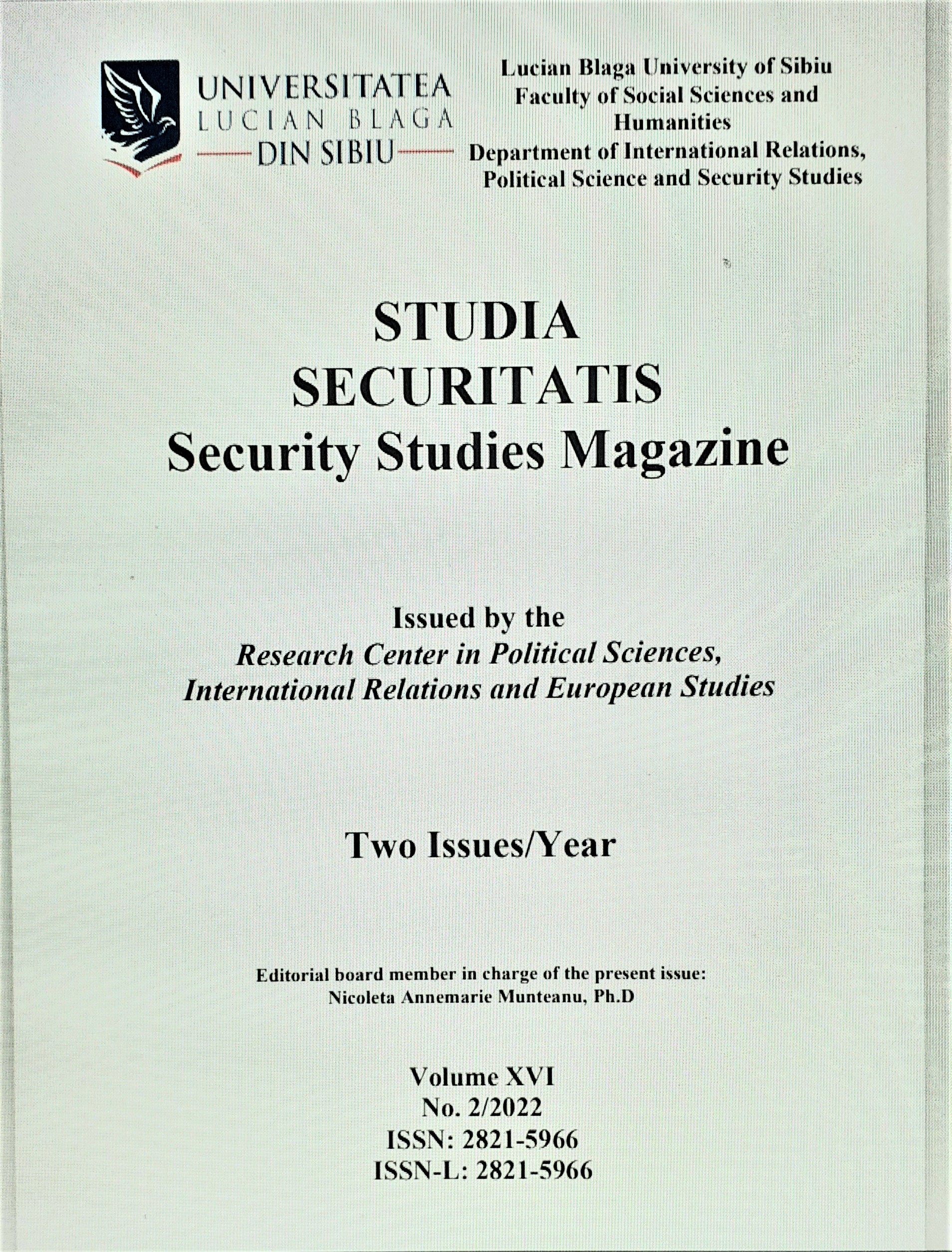FROM TEMPORARY SHELTER TO PROSPECTS OF INTEGRATION. THE POLICY OF THE EVANGELICAL LUTHERAN CHURCH A.C. IN ROMANIA REGARDING REFUGEES FROM UKRAINE.
GOALS, LIMITS, AND CHALLENGES
FROM TEMPORARY SHELTER TO PROSPECTS OF INTEGRATION. THE POLICY OF THE EVANGELICAL LUTHERAN CHURCH A.C. IN ROMANIA REGARDING REFUGEES FROM UKRAINE.
GOALS, LIMITS, AND CHALLENGES
Author(s): Ramona BesoiuSubject(s): Christian Theology and Religion, Human Rights and Humanitarian Law, Civil Society, Governance, International relations/trade, Security and defense, Developing nations, Present Times (2010 - today), Inter-Ethnic Relations, Peace and Conflict Studies, Asylum, Refugees, Migration as Policy-fields, Russian Aggression against Ukraine
Published by: Editura Universitatii LUCIAN BLAGA din Sibiu
Keywords: Ukraine; refugees; integration; evangelical Lutheran Church (ELC); Romania;
Summary/Abstract: Romania, as a neighboring country, has also been affected by the refugee crisis since the beginning of the conflict in Ukraine. Whether as a destination or a transit route to other countries, in the last five months Romania has been a short, mid-, or long-term haven for many Ukrainian refugees. The government's measures to support refugees – ranging from money for food and shelter to ensuring access to the Romanian labor market and education system - have often been ambiguous and incomprehensible. But these were completed by the massive mobilization of non-profit organizations, churches, and the population. Starting from the month of March 2022 until today, several hundred refugees have found shelter in the homes of the Evangelical Lutheran Church A.C. in Romania. The aim of the present paper is 1) to analyze the measures implemented by Evangelical Lutheran Church A.C. in Romania to provide a medium or long-term rapid response to the needs of Ukrainian refugees: accommodation, food, transport, assistance with funds, collection of food and goods, medical, psychological, or spiritual care; 2) to identify the limits, challenges, and the risks of working with refugees 3) to outline on the analyzed data the main lines of development of a church strategy regarding refugees, to what extent they can be integrated, given that we are talking about migrants who live mostly in transit, traumatized by the losses and destructions caused by the war, in the hope of a return as soon as possible. From a methodological point of view, the study is a qualitative one, the research methods used are participatory observation in the locations where the refugees are accommodated, biographical interview with the refugees, and interview with a group of experts.
Journal: Studia Securitatis
- Issue Year: XVI/2022
- Issue No: 2
- Page Range: 290-307
- Page Count: 18
- Language: English
- Content File-PDF

